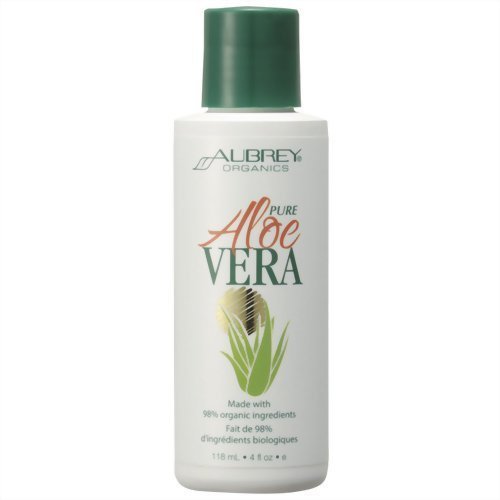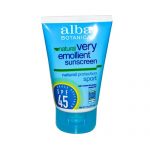Women's Sunscreen, Lotion & Tanner
Shop vegan and cruelty-free women's sun protection, tanning, and after-sun products. With any of the products below, you can protect your skin from the harmful effects of the sun without compromising your ethics. They are all 100% free of animal-derived materials, ingredients, by-products and testing.
Women's Sunscreen, Lotion & Tanner
What is vegan and cruelty-free sunscreen, lotion and tanner?
The term “vegan” with regard to sun care and tanning products, refers to products that do not contain animal derived or sourced ingredients; however they might be tested on animals. The term “cruelty-free” on the other hand, means a product and its ingredients aren’t tested on animals; however the product include animal derived or sourced ingredients. Sunscreen, after-sun lotion, self-tanner and other sun care products that are both vegan AND cruelty-free don’t have any animal derived or sourced ingredients, and none of the ingredients are tested on animals.
What companies make vegan/cruelty-free sunscreen and self-tanner?
There are a growing number of companies that make sunscreen, self-tanner and after-sun lotion that don’t use ingredients that are sourced from, derived from, or tested on animals. Some of these companies are:
- HEMPZ
- Alba Botanica
- Lavanila
- Aubrey Organics
- 3rd Rock Sunblock (certified cruelty-free, but uses beeswax in their sunscreen)
Why should I buy sun care products that are vegan and cruelty-free?
Why hurt a sweet little animal in a lab, or use an animal’s fat when vegetable fat can be used? The fact is that every sunscreen and tanning product can be effectively made without animal derived and sourced ingredients, and without those that are tested on animals. Buying vegan and cruelty-free products means you’re supporting products that don’t use ingredients forcefully taken from animals, or are forcefully tested on them.
Are vegan & cruelty-free sunscreen and tanning products expensive?
In general, vegan and cruelty-free sunscreen, tan enhancers and other sun care products are not any more expensive, or any less-expensive, than products that include animal sourced and derived ingredients and/or were tested on animals. Just like non-vegan/non-cruelty-free products, there are differences in the quality of the ingredients used, the effectiveness of the products, differences in the manufacturing processes, and different brand names behind the products; all of these factors can make prices vary quite a bit from one product to the next. Some sun care and tanning products are very inexpensive, some have a steep price tag, and most fall somewhere in between.
Should I get rid of any non-vegan sun care and tanning products that I already own?
This is a controversial topic within the realm of veganism and cruelty-free living: if you asked 100 vegans you would probably hear 50-100 different opinions, but we believe there is no right or wrong answer to this question; it's completely up to you to decide what you want to do, what you're comfortable with, and what you can afford. As you become more and more immersed into a vegan and cruelty-free lifestyle, you’ll find that ridding your life of animal products can be a long process, because of the prevalence of animal derived and sourced materials and ingredients in so many of today’s consumer, commercial and industrial goods. Some options however, might be to give away any unused or gently used products to friends and family, or use products (if you’re comfortable with it) until they have run out or otherwise outlived their usefulness. Simply throwing them away is generally considered wasteful, and we would recommend turning to that as a last resort.
How do you choose which companies to list in your store?
We keep a growing list of companies that we find, or are suggested to us, whose entire line of sunscreen and related products seems to be completely vegan-friendly and cruelty-free. We get in touch with these companies to find out which products of theirs, if any, use animal derived or sourced ingredients, or have ingredients that are tested on animals. If they assure us that all of their sun care and tanning products are cruelty-free and suitable for vegans, and they can be bought on Amazon, then we list those products here for your convenience.
How much sunscreen should I apply…and how often?
The American Academy of Dermatology recommends applying one ounce (about a palm-full) to all exposed skin, and to reapply every two hours, and after swimming or sweating it off.
How to calculate the SPF that’s right for you
Here's the formula to calculate which SPF you should use:
- SPF x the time it takes to burn = time needed to receive the same dose of UV that you'd have gotten if you hadn't used sunscreen.
In other words, if your skin would normally burn after 30 minutes in the sun, an SPF 15 sunscreen would theoretically let you stay in the sun for 450 minutes without burning (15 SPF x 30 minutes), provided it's applied properly.
Please Note: The most important part of sunscreen is applying enough sunscreen, not the SPF factor.
What do I need to know about sunscreen ingredients?
Sunscreens contain filters that reflect or absorb UVA and/or UVB rays. There are two main types of sunscreens:
Organic: Organic sunscreens absorb UV radiation and convert it to a small amount of heat. Organic sunscreens might contain PABA derivatives, cinnamates, salicylates and benzophenones.
Inorganic (Mineral): Inorganic sunscreens, also known as “mineral” sunscreens reflect and scatter UV radiation. They might contain titanium dioxide or zinc oxide. Inorganic sunscreens are typically less irritating to skin.
Is there anything else I need to know about sunscreen?
Here are some tips from the Mayo Clinic with regard to the proper application of sunscreen:
- Apply generous amounts of sunscreen to dry skin 15 minutes before you go outdoors.
- Use sunscreen on all skin surfaces that will be exposed to the sun, such as your face, ears, hands, arms and lips. If you don't have much hair on your head, apply sunscreen to the top of your head or wear a hat.
- Reapply sunscreen every two hours - and immediately after swimming or heavy sweating even if you're using a product that's water resistant.
- Remember that sand, water and snow reflect sunlight and make it more important to use sunscreen.
- Since UV light can pass through clouds, use sunscreen even when it's cloudy.
Similar product categories
Found this page helpful? Check out similar product categories to learn more!
For companies that make vegan & cruelty-free sun protection and tanning products
If you make vegan and cruelty-free sunscreen, self-tanner, or any other sun protection or tanning product, we’d love to feature you and your products on our site! Contact us at - info(at)getitvegan(dot)com - to find out more!
Sources
Some of the information for this mini guide on women’s sunscreen, lotion and tanning products was gathered from the following sources:
- Adult Health: “Best sunscreen: Understand sunscreen options.” (May 8, 2016). Mayo Clinic. Retrieved March 29, 2017. http://www.mayoclinic.org/healthy-lifestyle/adult-health/in-depth/best-sunscreen/art-20045110?pg=1
- Health: “There's proof: Sunscreen reduces skin aging.” Caleb Hellerman (June 4, 2013). CNN. Retrieved March 29, 2017. http://www.cnn.com/2013/06/04/health/sunscreen-aging/
- Pediatrics: “Prospective Study of Sunburn and Sun Behavior Patterns During Adolescence.” Dr. Stephen W. Dusza et al. (February, 2012). U.S. National Library of Medicine. Retrieved March 29, 2017. https://www.ncbi.nlm.nih.gov/pmc/articles/PMC3269110/
- Anais Brasileiros de Dermatologia: “Sun Protection Factor - Meaning and Controversies.” Sergio Schalka; Vitor Manoel Silva dos Reis (May/June, 2011). SciELO. Retrieved March 29, 2017. http://www.scielo.br/scielo.php?pid=S0365-05962011000300013&script=sci_arttext&tlng=en
- Prevention and Care: “Sunscreen FAQs.” (n.d.). American Academy of Dermatology. Retrieved March 29, 2017. https://www.aad.org/media/stats/prevention-and-care/sunscreen-faqs





